Audio
Sign up for our newsletter
We summarize the week's scientific breakthroughs every Thursday.
-
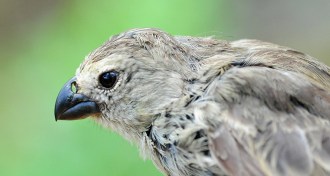 Animals
AnimalsParasites ruin some finches’ songs by chewing through the birds’ beaks
Parasitic fly larvae damage the beaks of Galápagos finches, changing their mating songs and possibly causing females to pick males of a different species.
-
 Health & Medicine
Health & MedicineA neural implant can translate brain activity into sentences
With electrodes in the brain, scientists translated neural signals into speech, which could someday help the speechless speak.
-
 Earth
EarthThis volcano revealed its unique ‘voice’ after an eruption
Identifying patterns in a volcano’s low-frequency sounds could help monitor its activity.
-
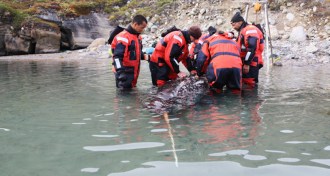 Animals
AnimalsHere’s what narwhals sound like underwater
Scientists eavesdropped while narwhals clicked and buzzed. The work could help pinpoint how the whales may react to more human noise in the Arctic.
-
 Animals
AnimalsA killer whale gives a raspberry and says ‘hello’
Tests of imitating sounds finds that orcas can sort of mimic humans.
By Susan Milius -
 Neuroscience
NeuroscienceJazz improvisers score high on creativity
Jazz musicians’ creativity linked to brain dexterity.
By Kimber Price -
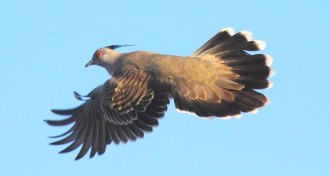 Animals
AnimalsCrested pigeons sound the alarm with their wings
Crested pigeons have specialized feathers that signal danger when they flee from an apparent threat.
-
 Health & Medicine
Health & MedicineMoms tweak the timbre of their voice when talking to their babies
Mothers shift the timbre, or quality, of their voice when talking to their babies, a change that happens in many different languages.
-
 Environment
EnvironmentPeace and quiet is becoming more elusive in U.S. wild areas
Human noise stretches into the wilderness.
-
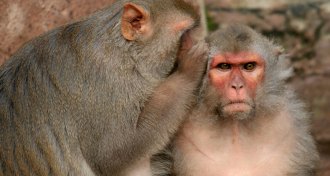 Anthropology
AnthropologyMonkeys have vocal tools, but not brains, to talk like humans
Macaques have vocal tracts, but not brains, built for talking much as people do, scientists say.
By Bruce Bower -
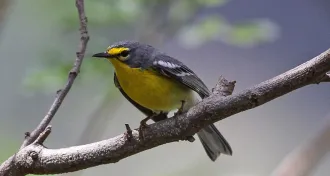 Animals
AnimalsWarm-up benefit could explain morning birdsong
Even birds sing better after vocal warm-up, and an evolutionary arms race among rivals might have led to the intensity of the dawn chorus.
By Susan Milius -
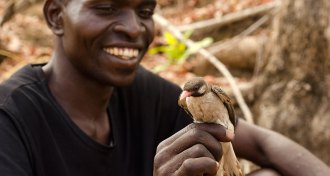 Anthropology
AnthropologyHumans, birds communicate to collaborate
Bird species takes hunter-gatherers to honeybees’ nests when called on.
By Bruce Bower